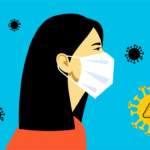In a study consisting of 180 participants, within the range of 17 to 45 years of age, it was found that those with higher ADHD traits were more likely to have experienced insomnia.
Conducted by Karolinska Institutet and released in Biological Psychiatry: Cognitive Science and Neuroimaging, the study included only participants with no past diagnosis of ADHD.
The participants were split into two groups, one of which slept with no disturbances, while the other group was deprived of sleep throughout the course of the study.
Following a night of either full sleep or sleep deprivation, tests were given to assess executive functions and emotional control among the participants.
The participants with high ADHD traits, researchers noticed, were more likely to have experienced sleep deprivation, greatly impairing performance in experimental tasks given during assessments.
“Our findings suggest that sleep deprivation affects cognitive conflict variability and that less stable performance in executive functioning may surface after sleep loss in vulnerable individuals characterized by subclinical symptoms of inattention,” according to the study’s authors.
“In conclusion, this study indicates that phenotypes with subclinical ADHD and emotional instability symptoms can help explain why some individuals show cognitive impairments after sleep loss, whereas others are hardly affected—a question that has not yet been resolved.”
The study was authored by Orestis Floros, John Axelsson, Rita Almedia, Lars Tigerströma, Mats Lekanderabc, Tina Sundelin, and Predrag Petrovic.


